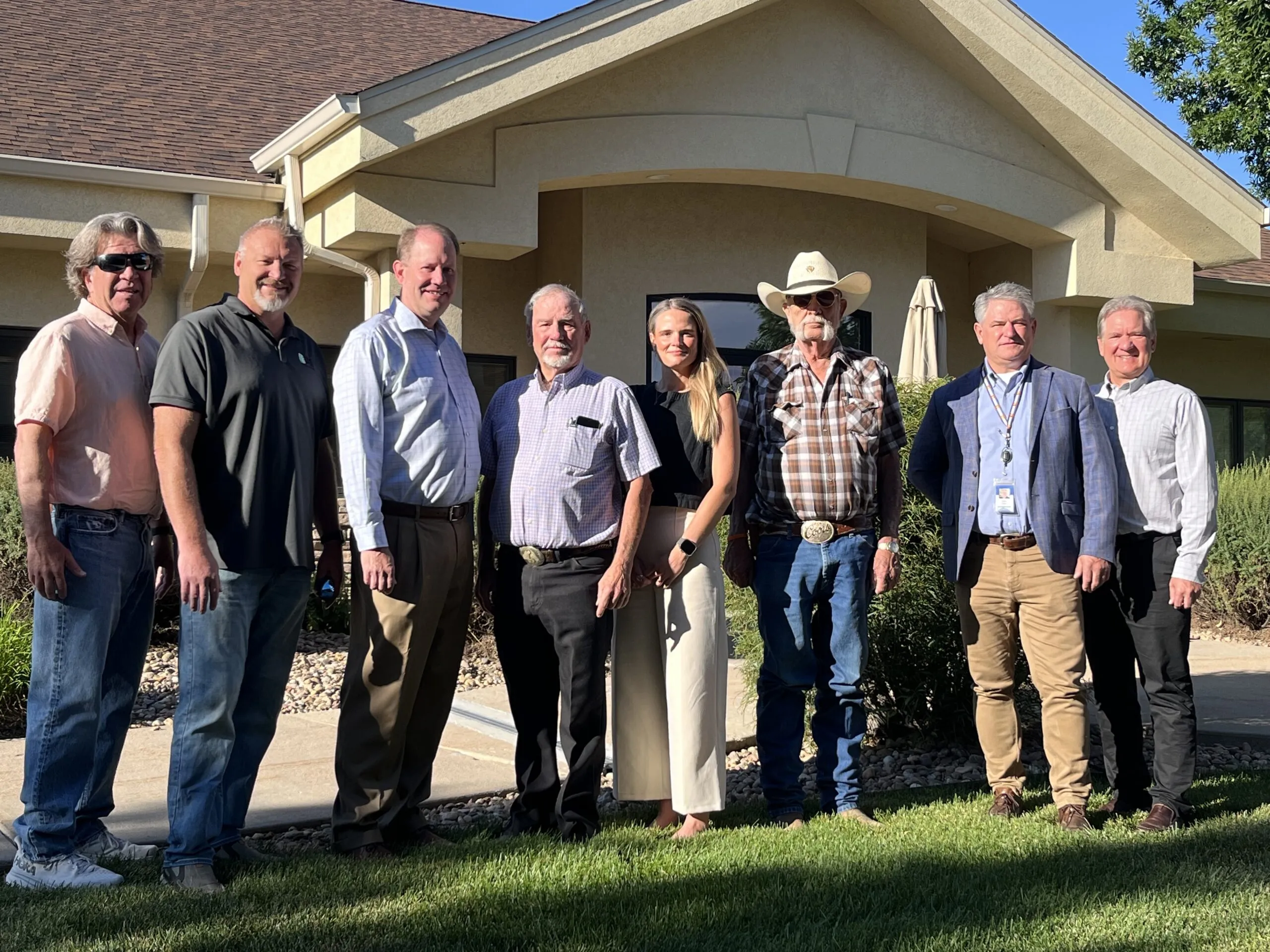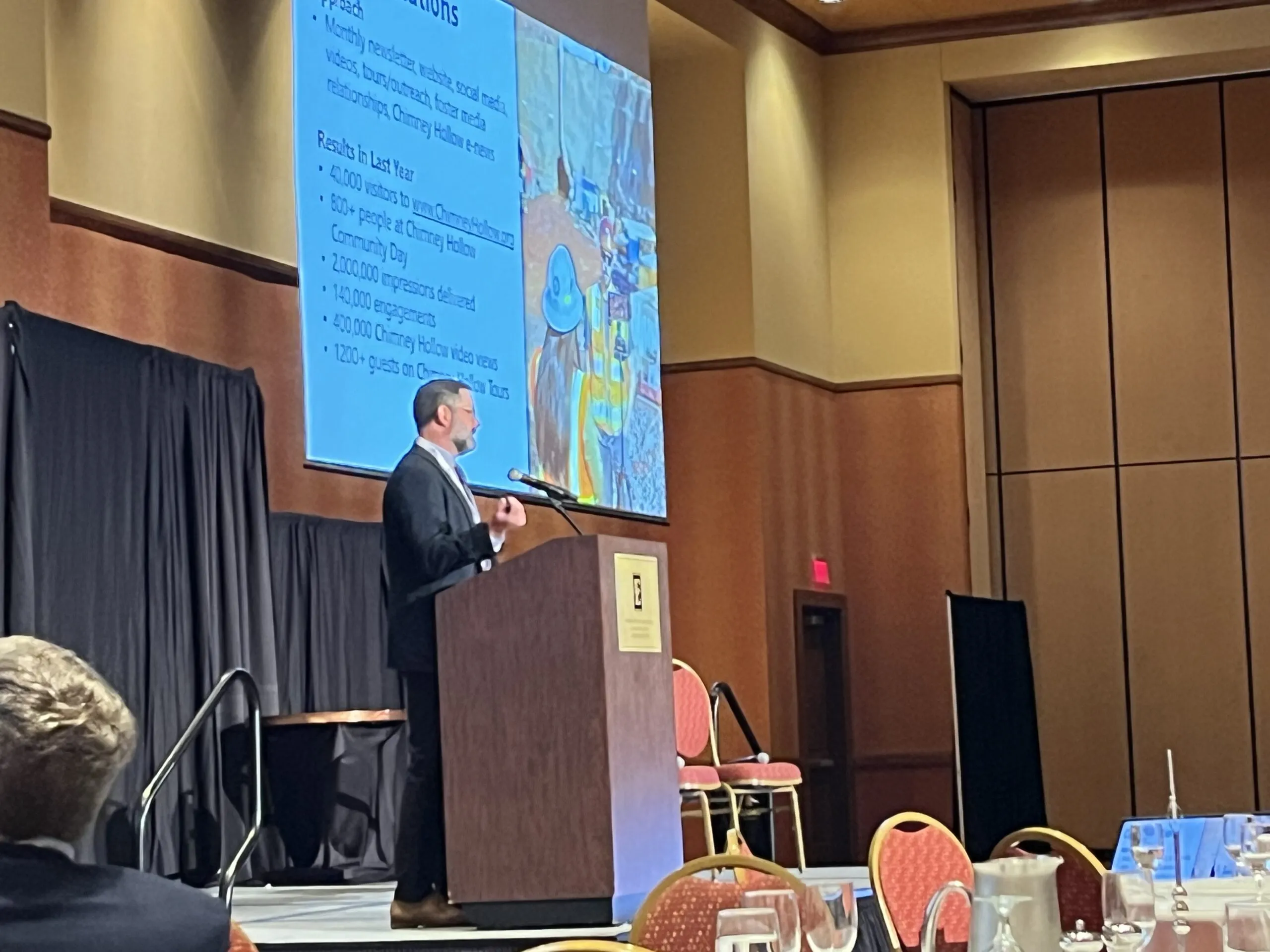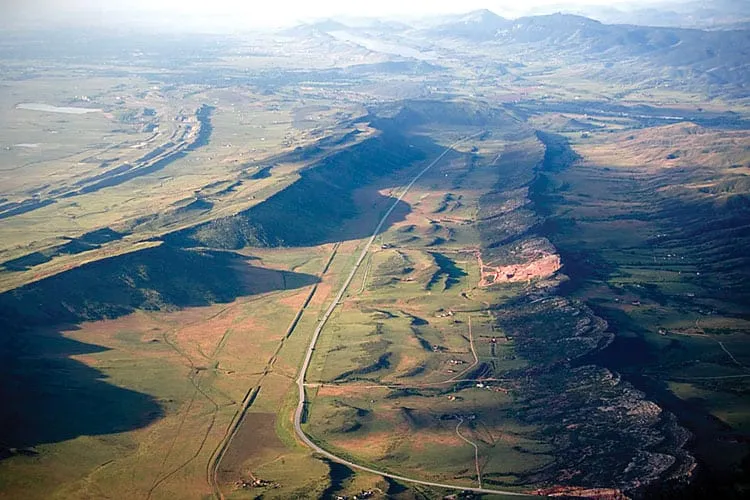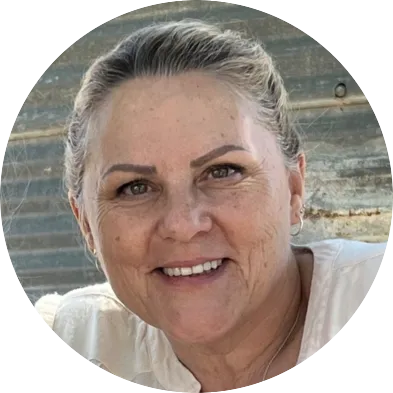Northern Colorado ag leaders talk water, legacy and AI

If you ever want to get someone in Colorado agriculture talking, just bring up water. That was the No. 1 issue on the minds of agriculture and water leaders Tuesday at BizWest’s CEO Roundtable on agriculture.
Practically every ag topic lands on water, as Colorado is a mixed bag of complicated water law, staggering population growth, booming technology and farmers aging out of the business with fewer children willing to take on the family farms.
But water is just the icebreaker. Next, talk soil and crop health, or incorporating AI and technology into an ag economy, shrinking infrastructure, and you have the makings of a master’s degree in Next-Gen Colorado Agriculture.
SPONSORED CONTENT
Colorado’s agriculture professionals have become true boots-on-the-ground professionals, living the realities of every day. When they met up Tuesday to discuss the most-pressing issues of the day, no one was at a loss for words.
“I think there’s a lot of things that need to be said that people don’t talk about,” said Richard Seaworth, CEO Seaworth Farms Inc. in Wellington. “I do believe eventually the state will take these water rights away from us. When that happens, it’s going to be a travesty.”
He and legacy grower Bill Markham of M&M Farms in Berthoud, who has been providing barley for Molson Coors Beverage Company (NYSE: TAP) for 63 years, both said they were concerned about growing municipalities putting the cart before the horse. Planning extensive growth before they have all the water they need to supply new subdivisions will eventually become “eminent domain” because newcomers to this state do not understand Colorado’s complicated water laws and rights system.
“They’ve taken three of the best farms in our country and are developing it,” Markham complained of developments in the Berthoud/Johnstown area. “It’s terrible. This is the best ag ground there is. Where’s the water coming from? Do you remember 2003, 2004, 2005, when drought hit? You’re going to declare eminent domain from ag and take my water from me. I really hate to see the productive ground sold for development.”
The city of Aurora’s recent purchase of $80 million to “periodically” divert more than 7 billion gallons out of the Arkansas River for municipal use is another example.
“In any successful economy, the building block is water, whether it’s for ag or homes or commercial industrial uses, whatever, it’s pretty important in the future,” said Brad Wind, CEO of Northern Colorado Water Conservancy District in Berthoud. “That threat is real; it hit us smack in the face two months ago when Aurora acquired $80 million in the Arkansas.”
Northern Colorado ag land has been shrinking for years as Colorado’s population growth continues its upward trajectory. And frankly, there are farmers out there who use their water rights as their 401(k) accounts, selling their farmland at retirement. Yet other farms just don’t have the interest from their families to continue a family farming legacy that for many started 100 years ago.
Jay Ewald, general manager of the 70-year-old Northern Feed & Bean Inc. in Lucerne, which provides grains for Purina Mills Inc., and pinto beans from a three-state area, worries about what happens when the growers age out.
“They’re an aging group of growers,” he said. “Of the 95 we work with, there are only two sons or daughters that are getting back in the business. That is going to be a long-term issue I see going forward.”
Farmers feed America. As farms disappear, so, too, does the food they provide. The less food, the higher demand. The higher demand, the higher the prices at the grocery store.
“We’re going to have to be really cautious moving forward to save what we have, but I don’t see that happening,” Seaworth said. “We don’t have the next generation of farmers coming up. I have a good son, but he turns 50 in a month. I’ve got a grandson coming, but who knows?”
Still, a warming climate is doing Northern Colorado no favors. That’s where the science and technology come in, not only to find solutions to water shortages with proper management and storage solutions, but crop and soil health. Management tools are coming in all forms — even the use of drones to disperse pesticides and herbicides, and consequently hurting the business of crop dusting.
AI Organics CEO Travis Bahnsen deals in compost, which is known to help soils and save water, and also reduce food waste from hitting landfills.
“There are lots of studies that say up to one inch of compost per acre can retain up to another 27,000 gallons water per acre,” Bahnesen said, adding that a current study in California shows that even cows have a preference for composted grass. “As you raise the organic matter, the soil retains more water for longer periods of time.”
Another tool for growers comes in the form of breeding crops for drought tolerance or resistance, another way to help conserve a tight water supply. But that will come with its own issues, said Eugene Kelly, director of the Colorado Ag Experiment Station, Colorado State University, who studies soil health.
“We’re working mostly in sorghum now looking at the potential for drought tolerance, and we’re finding when you breed plants for drought tolerance, they’re more susceptible to disease,” Kelly said. But he said, breeding will be the key to help plants adapt to conditions in the long term.
While these tools can help a grower manage crops perhaps with less water, Colorado’s water providers are busy shoring up water storage for junior water rights, while the senior rights are hot commodities on the market.
One idea that has worked well for other areas in Colorado to curb the pressure on our precious water is the social-responsibility avenue, Wind said.
“In my comments to our board, other parts of the state have found ways to put up resistance to those concepts, making (buy-and-dry) socially unacceptable,” Wind said. “Not everyone has bought into it, but if we get the right leaders involved to say this is not appropriate, and have conversations about stripping water away from communities and the long-term impacts.
“We all understand water value is a property right of sorts,” Wind said. “It’s a balancing act. We have about 20 years to have this conversation. At some point you’re on a slippery slope of too much acquisition and economies start falling apart.”
The CEO Roundtable also was attended by Ashley Cawthorn of sponsor Berg Hill Greenleaf Ruscitti LLP and Mike Grell of sponsor Plante Moran.
If you ever want to get someone in Colorado agriculture talking, just bring up water. That was the No. 1 issue on the minds of agriculture and water leaders Tuesday at BizWest’s CEO Roundtable on agriculture.





